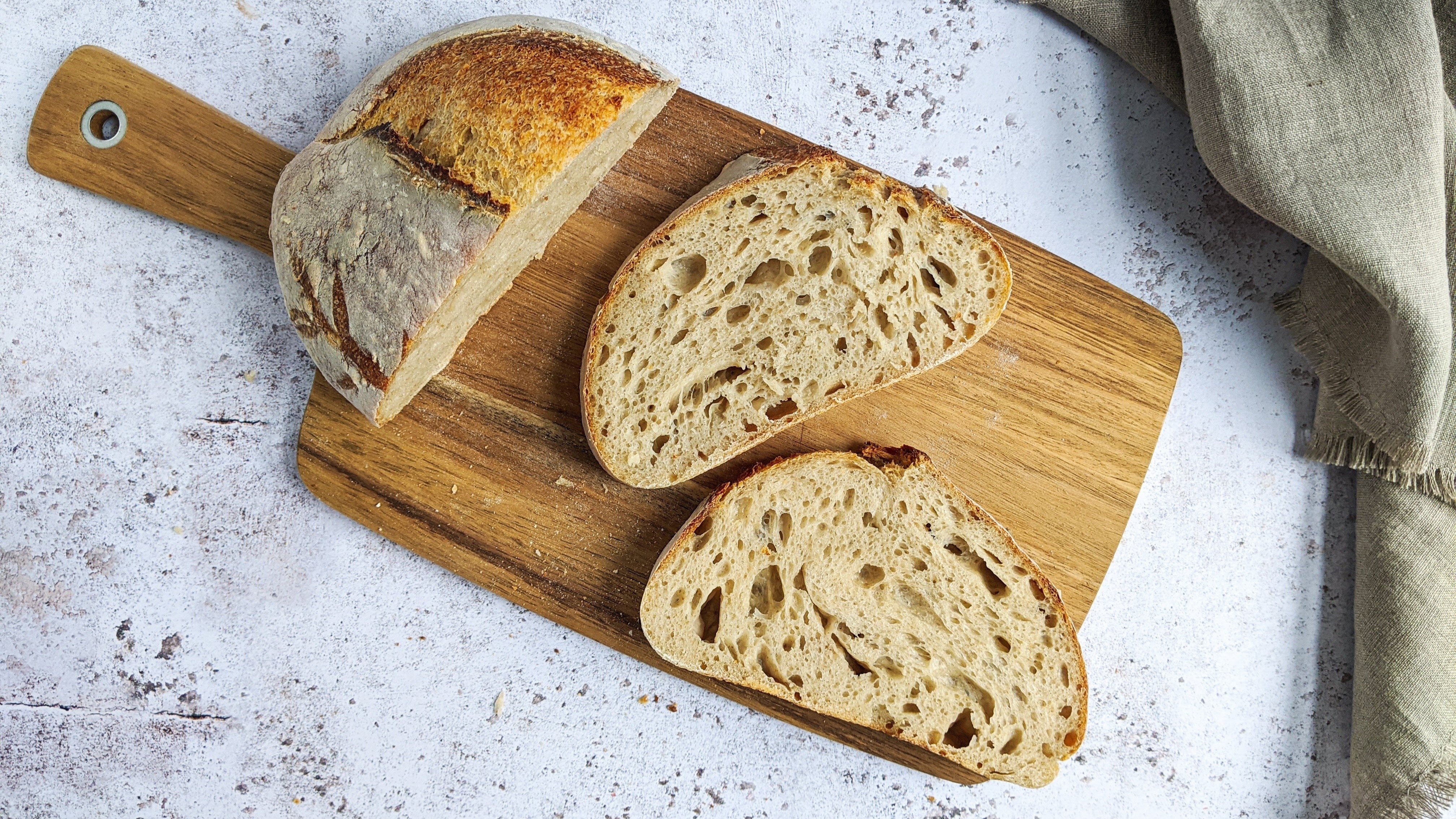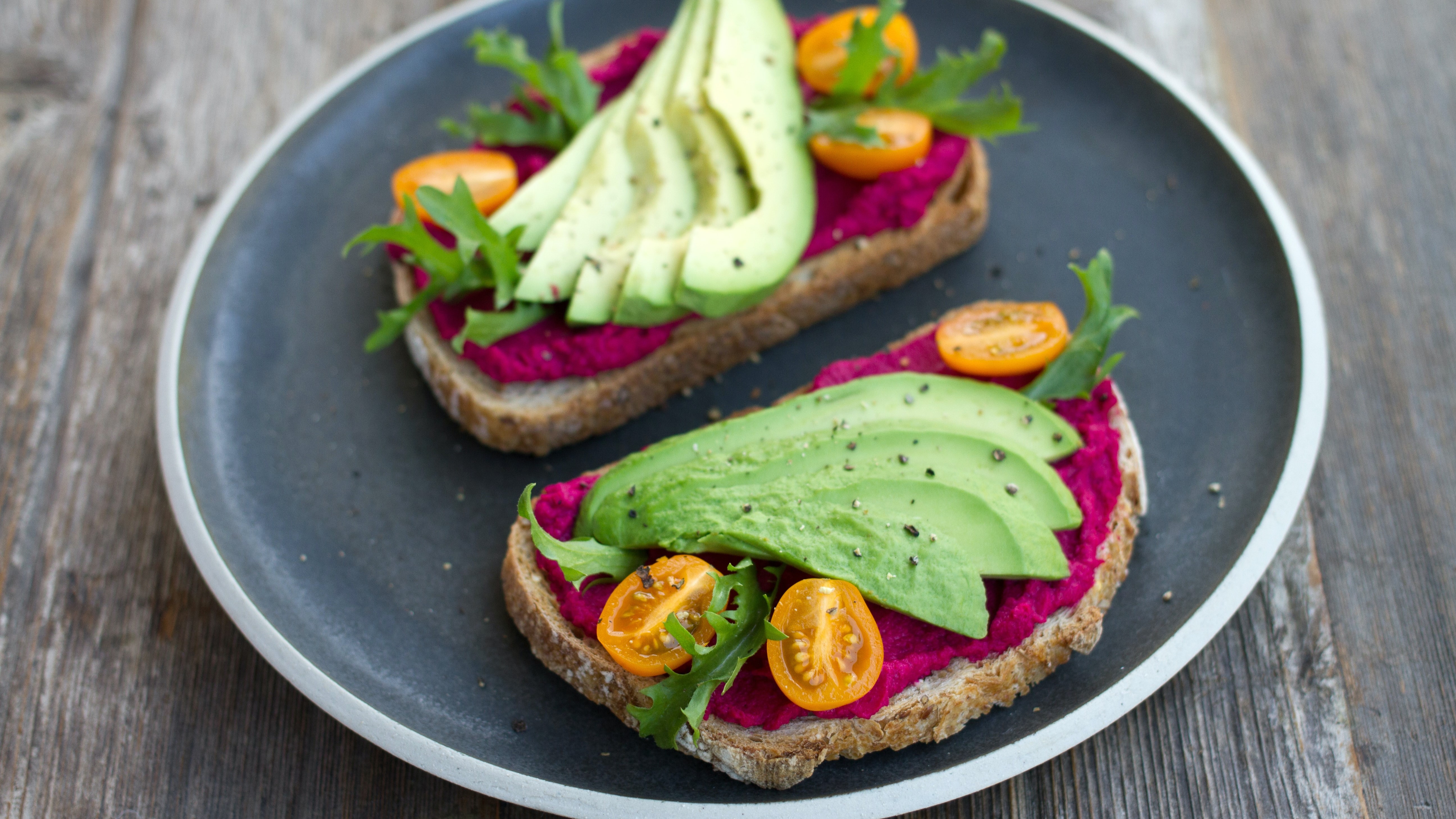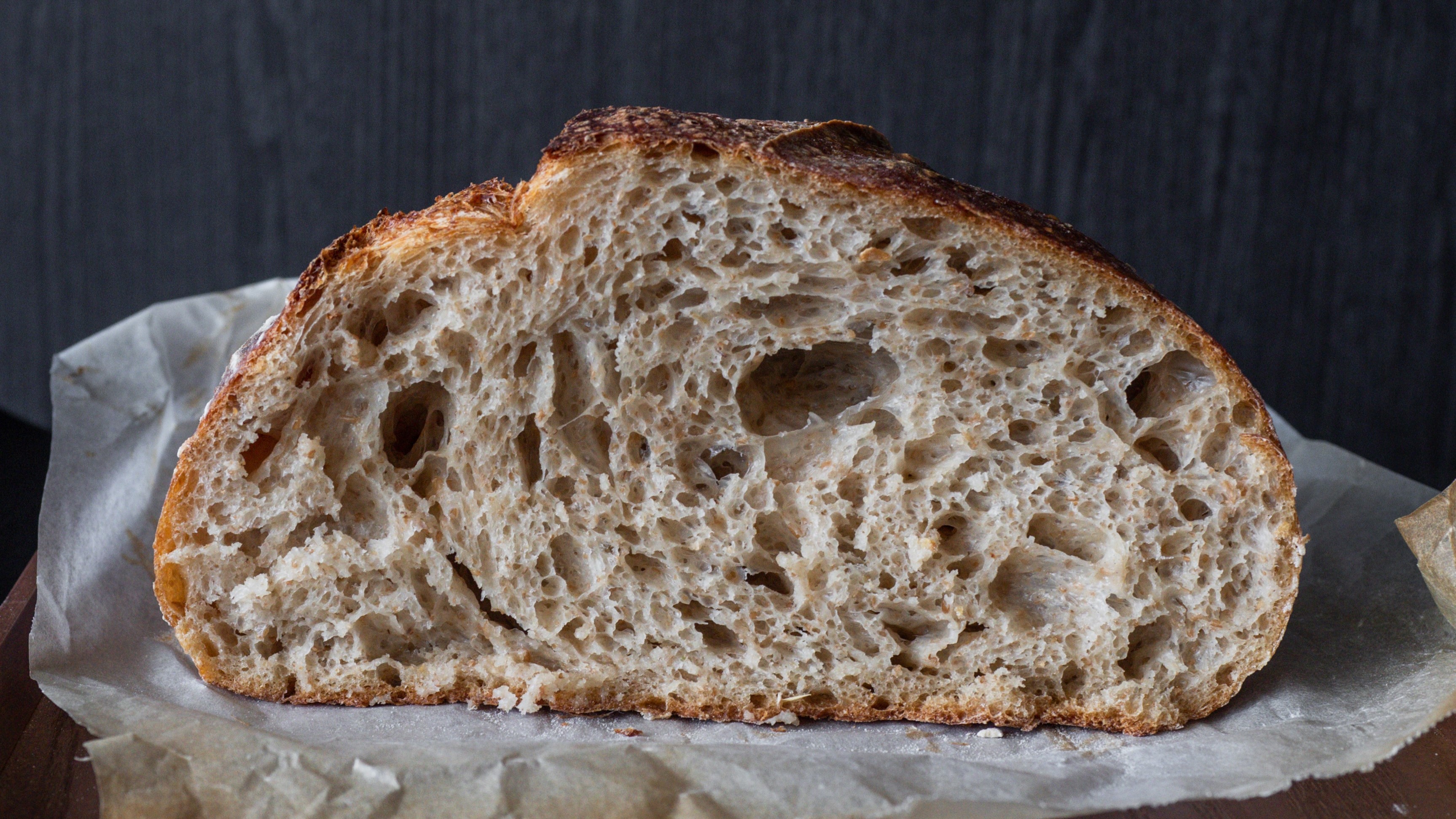Unless you have been living in a cave, you will have come across sourdough bread – it’s the bread of the Instagram age! 📱🍞 But is sourdough good for you?
Are there health benefits to sourdough bread? Where did it come from? And why is it so popular all of a sudden?! 🤔
These pressing questions and more will be digested in this article.
Grab your butter knife and spread of choice, it’s time to dig in!
- What’s the deal with sourdough bread?!
- The history of sourdough bread
- Is sourdough good for you?!
- A word on the quality…
- The final word: is sourdough good for you?

What’s the deal with sourdough bread?!
Seriously, sourdough is EVERYWHERE.
Open Instagram and someone somewhere has just posted a photo of a fresh loaf coming out of the oven.
This style of bread has seen something of a revival over the past decade and is now the bread of choice for millions around the world.
Many people are going in for the flavour, regardless of whether sourdough is good for you or not.
So where did this global obsession come from?
The history of sourdough bread
Ever wonder about the origin of sourdough bread? Well, today I have the answers! 💡
This bread has a rich, ancient and – let’s face it – delicious history that dates back thousands of years, spanning various regions, cultures and times.

As you may have expected, the ancient Egyptians played a part in its creation.
Sourdough is believed to be one of the oldest forms of leavened bread, originating in Ancient Egypt in around 1500 BC.
It’s assumed that Egyptian bakers discovered that leaving a mixture of flour and water exposed to the hot air allowed it to ferment naturally, giving rise to the sourdough starter.
This tangy bread eventually spread to the Middle East then into Europe, where it became a fundamental part of daily life.
The practice of using fermented starters to make bread was adopted by many cultures in the region. It became a staple for many European civilizations, including the Greeks and Romans.
Interestingly, sourdough bread was a big part of the California Gold Rush in the mid 19th century. ⛏️ Miners and pioneers relied on sourdough starter as a source of leavening because it was more reliable and durable than other yeast sources.
Through the next century, commercial yeast replaced sourdough, but there has been a resurgence of interest in traditional and artisanal breadmaking in recent years.
Of course, this includes sourdough, which proves a hit due to its unique flavour and aesthetic. With a distinctive and dramatic crust, it’s the most ‘Instagrammable’ bread!

Is sourdough good for you?!
So, we know that people love the visual appeal and flavours, but are there any health benefits of eating sourdough bread? Is it better for you than more conventional breads?
This delicious bread is made through a fermentation process involving wild yeast and lactic acid bacteria.
This process not only give the bread its signature tangy taste, but it also offers some potential health benefits:
Improved digestibility
The fermentation process produces lactic acid and reduces (or ‘pre-digests’) the phytic acid and gluten, which makes it easier on the digestive system.
Note that while sourdough is lower in gluten, it is not gluten free. Coeliacs will still want to avoid it.
Lower Glycemic Index
Additionally, sourdough bread typically has a lower glycemic index than regular bread, which means it raises blood sugar slower than regular bread.
Eating it will still raise your blood sugar, but you won’t see such dramatic spikes. Good news for diabetics and those at risk of diabetes!
Packed with nutrients
Sourdough also contains essential nutrients, such as folic acid, calcium, phosphorus, and iron. This makes it more nutritious than some other breads (white, I’m looking at you…).
Interestingly, studies have found that the fermentation process unlocks these nutrients and makes them easier to absorb.
Fewer additives
Generally, sourdough bread naturally preserves itself due to the present of acetic acid. This means extra additives and artificial ingredients are not required.
This is certainly the case if you are making it at home or buying it from an artisan or organic bakery.
Yet be careful buying from larger brands and from grocery stores, as some will add preservatives.

A word on the quality…
Like everything in life, sourdough is on something of a continuum. You’ll find both good and poor-quality sourdough.
Naturally, it’s better to choose the best you can afford.
Commercial sourdoughs may have different production methods and include additives. Instead, opt for whole-grain, organic, and naturally leavened varieties for the best health benefits.
The final word: is sourdough good for you?
The verdict is here – sourdough bread is pretty good for you!
It’s certainly a healthier choice than some other options due to its nutrient content and improved digestibility, which means sourdough bread benefits the digestive system.
However, it is still a bread and still high in energy (i.e., calories).
If you want to lose the dad bod or avoid gaining weight, then piling your plate with bread won’t be the smartest move!
But eat it in moderation as part of a balanced diet and you’ll enjoy the flavour, health benefits and Instagram likes that come with this iconic bread!

